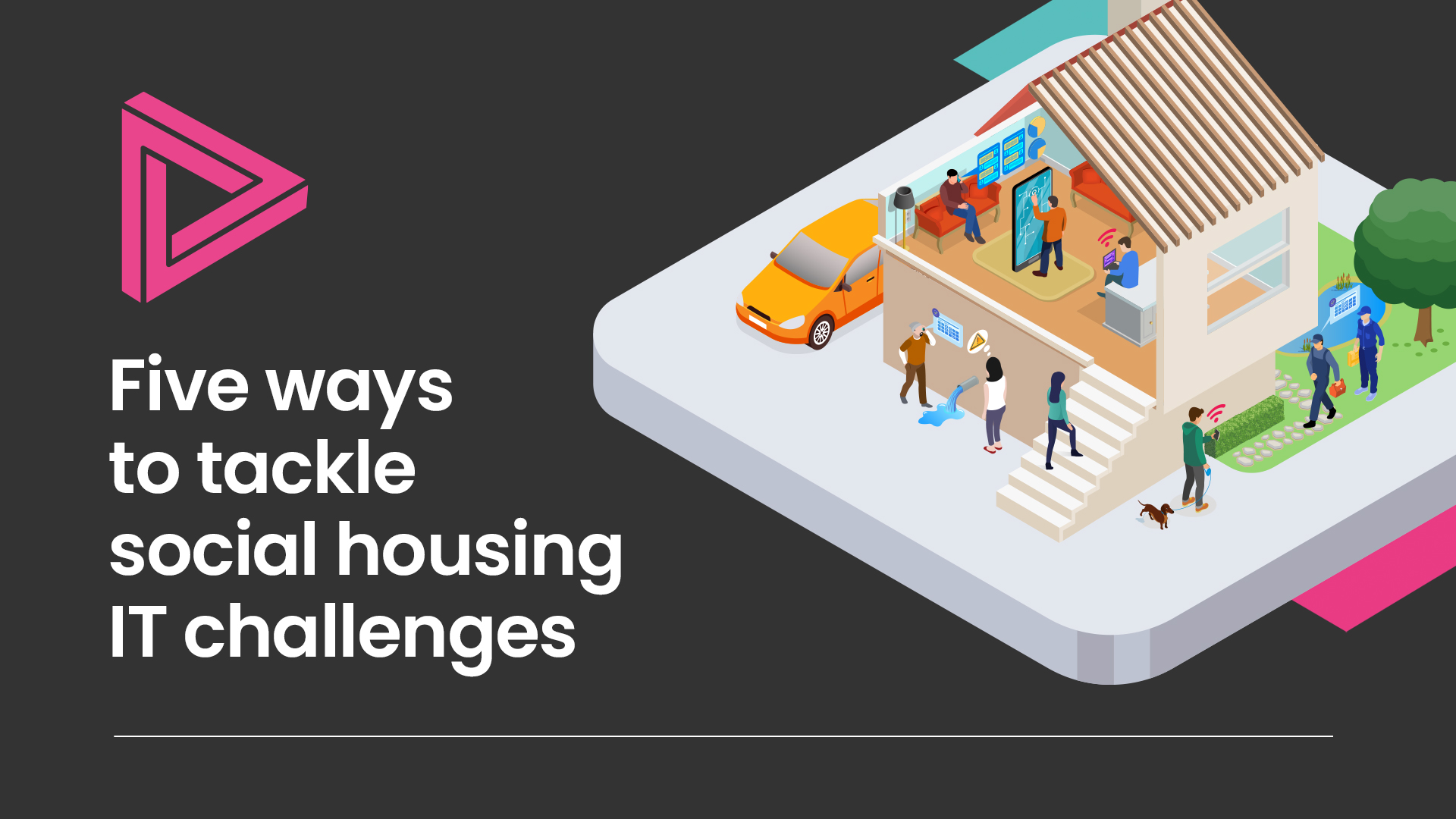It is no secret that social housing IT challenges continues to be a growing problem for housing associations. The changing expectations of the digital citizen, technology budget constraints as well as the ongoing recovery from Covid-19 means that these challenges are only going to increase over the next year.
In a digital-dependant world, CIOs and IT directors are now under more pressure than ever to deliver viable IT results, which sees results across every department from the construction site to the HR department. So, in a sector where the IT challenges are many, how can housing associations tackle them head on?
Enhancing tenant relationships
As a starting point, housing associations should first consider challenges around the tenant. Over the last few years, self-service portals have provided effective in helping tenants easily communicate with their housing provider, report issues and pay rent. But challenges arise if the portals are not supported by the right wraparound technology leading to frustrated tenants. The scalability of cloud systems helps protect portals during peak times, keeping tenants online at all times.
Cloud solutions also makes exchanging data between systems more secure and easier so that the tenant experiences a coherent, joined-up service regardless of that fact that it is delivered by a variety of different systems.
Updating legacy systems
A mistake that housing associations often make is not updating legacy systems, due to time and budget constraints, but this can actually be more of a hindrance. Legacy systems can result in IT challenges across every department, including significant downtime and network errors, so should be a top priority for organisations.
Reliable and flexible connectivity solutions, such as WAN, PWAN or SD-WAN, can help modernise IT systems and streamline data usage, adjusting to increased demand on the network without downtime. By updating legacy systems, housing associations will have better scalability, reduced network congestion and built-in resilience.
New workplace expectations
Covid-19 has changed how the workplace operates and office employees, having become accustomed to remote working over the last year, will be looking for flexible working opportunities. CIOs and IT Managers need a remote working infrastructure in place which can easily support employees in their role regardless of location, if they are to agree to new hybrid working practices.
Microsoft 365 is a cost-effective cloud solution that enables employees to open, share and edit files securely from a shared server, which is easily accessible from an office desktop, tablet or mobile in any location. Staff can collaborate easily through virtual meetings, conference calls and instant chat available through Microsoft Teams.
Cost-effective solutions
One of the biggest challenges to any housing association’s IT team is budget and can stop organisations from realising their full potential through technology. However, it doesn’t have to. Housing providers can work with IT providers, like Digital Space, to ascertain what digital solutions are the most cost-effective for them. Digital strategies can also be tailored to not only provide cost-savings now but significant return on investment in the future.
Tackle social housing IT challenges through frameworks
Understanding which IT providers to work with and which technology solutions are the most suitable can be a minefield. However, the UK Government has a number of frameworks which helps to provide easier decision making for housing associations. Digital Space is part of the G-Cloud 12 Framework for instance, which provides a comprehensive list of Government-approved suppliers providing cloud capabilities. Frameworks like these give organisations the added reassurance that they are partnering with an expert IT provider that can resolve their IT challenges successfully. It also takes away the need to go out to tender helping to save invaluable time and money.
At Digital Space, we can help you tackle your social housing IT challenges head on. We’ve broken those challenges into four defined social housing challenge areas, including housing association offices, remote housing association workforces, how to provide exceptional resident services, as well as security and compliance in the social housing industry.







